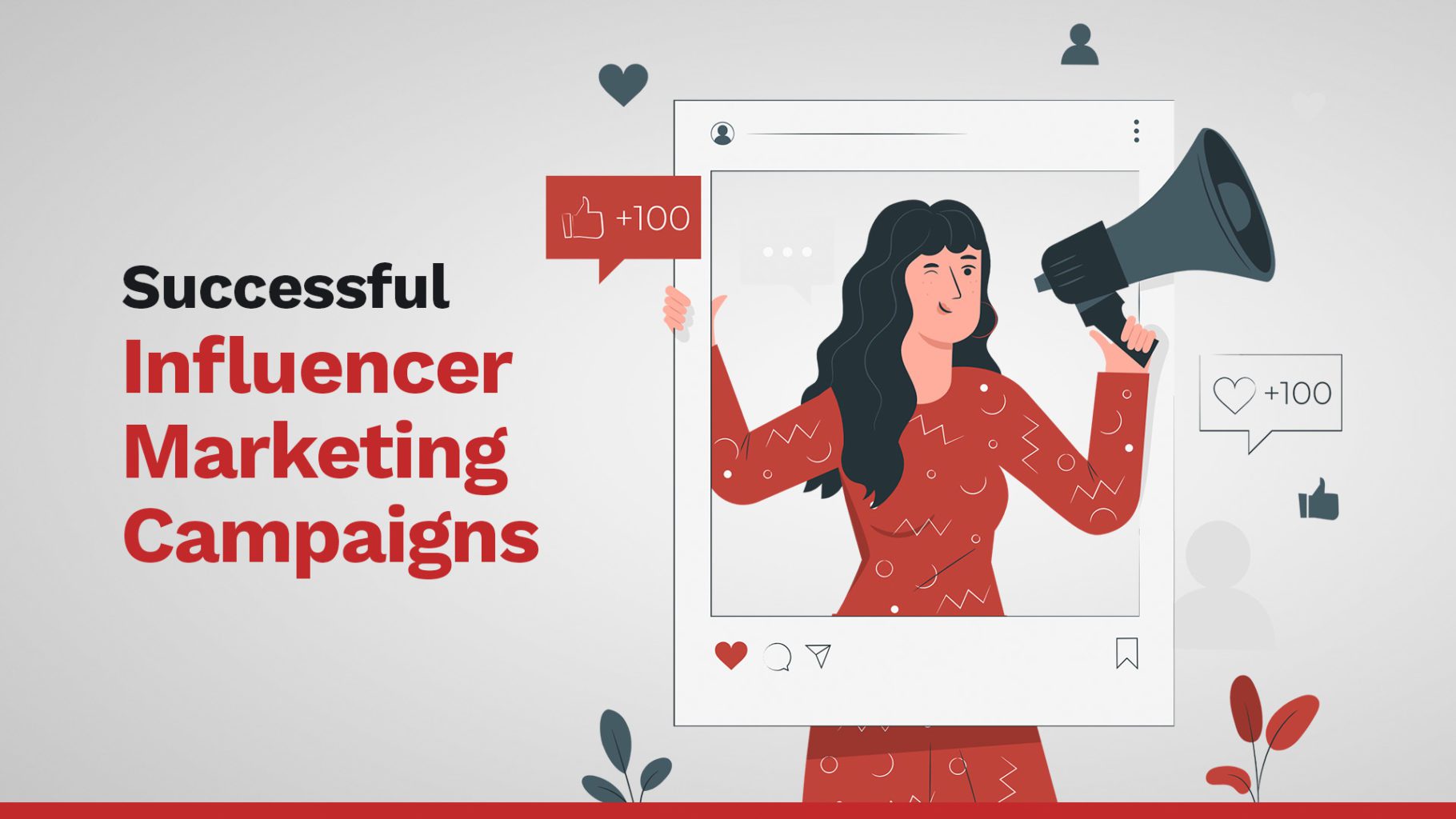In the fast-paced world of digital marketing, one strategy has consistently stood out for its effectiveness and creativity—Influencer Marketing. As businesses seek innovative ways to connect with their target audience, the best influencer marketing campaigns have become a powerhouse for brand promotion and customer engagement.
Best Influencer Marketing Campaigns: Unveiling the Pinnacle of Digital Impact

In today’s saturated market, grabbing the attention of consumers requires more than traditional advertising methods. The evolution of marketing strategies has given rise to influencer marketing, a dynamic approach that leverages the credibility and reach of individuals with significant online followings.
Defining Influencer Marketing
1. What is influencer marketing?
At its core, influencer marketing involves collaborating with individuals who have a substantial online presence to promote a brand or product. These influencers, often experts in their niches, wield the power to sway opinions and shape consumer behavior.
2. Types of influencers
In the vast landscape of influencer marketing, we encounter various types of influencers, from mega-celebrities to micro-influencers. Each category offers unique advantages depending on the campaign’s goals and target audience.
Key Elements of Successful Campaigns
To master the art of influencer marketing, it’s essential to focus on key elements that contribute to the success of campaigns.
1. Identifying the target audience
Before launching a campaign, a thorough understanding of the target audience is paramount. Aligning the influencer’s audience with the brand’s demographic ensures that the message resonates authentically.
2. Choosing the right influencers
Selecting influencers whose values align with the brand is crucial. Authenticity is the cornerstone of successful campaigns, and influencers who genuinely believe in a product or service convey this sincerity to their followers.
3. Crafting compelling content
Collaboration extends beyond a mere endorsement. Crafting engaging content that seamlessly integrates the brand into the influencer’s narrative is vital for capturing the audience’s attention and fostering a connection.
Case Studies: Success Stories
Numerous brands have achieved remarkable success through carefully orchestrated influencer marketing campaigns.
1. Nike’s collaboration with athletes
Nike’s partnership with top athletes not only showcased its products but also highlighted the values of determination and excellence—attributes associated with both the brand and the athletes.
2. Starbucks’ creative influencer partnerships
By collaborating with influencers to create unique Starbucks-themed content, the coffee giant tapped into a diverse range of audiences, fostering a sense of community and shared experiences.
Common Mistakes to Avoid
While influencer marketing offers immense potential, certain pitfalls can hinder its success.
1. Lack of authenticity
Audiences can quickly discern inauthentic endorsements. Brands must prioritize authenticity to build trust and credibility with their audience.
2. Ignoring engagement metrics
Beyond follower count, assessing engagement metrics such as likes, comments, and shares provides insights into an influencer’s actual impact and connection with their audience.
Measuring Campaign Success
For businesses investing in influencer marketing, defining and tracking key performance indicators (KPIs) is essential.
1. Key performance indicators (KPIs)
Metrics like reach, engagement, and conversion rates help gauge the success of a campaign and provide valuable insights for future strategies.
2. Analyzing return on investment (ROI)
Understanding the ROI of an influencer marketing campaign involves assessing the overall impact on brand awareness, sales, and customer loyalty.
The Future of Influencer Marketing
As technology advances, influencer marketing is poised for continuous evolution. Emerging trends and predictions offer a glimpse into the future of this dynamic industry.
1. Emerging trends
Live streaming, augmented reality collaborations, and niche influencers are anticipated to play pivotal roles in shaping the future landscape of influencer marketing.
2. Predictions for the industry
Increased regulation, enhanced data analytics, and the rise of virtual influencers are among the trends that are likely to reshape the influencer marketing terrain.
Benefits for Businesses
The benefits of incorporating influencer marketing into a business strategy are diverse and impactful.
1. Increased brand awareness
Through influencer partnerships, brands can exponentially expand their reach and introduce their products or services to a wider audience.
2. Enhanced credibility and trust
Consumers often trust recommendations from individuals they follow online. Influencers, through their authenticity and relatability, contribute to building credibility and trust for the brands they endorse.
Challenges in Influencer Marketing
While influencer marketing offers substantial benefits, it comes with its share of challenges.
1. Dealing with fake influencers
The rise of fake influencers and fraudulent engagement poses a challenge for brands. Thorough vetting and verification processes are crucial to avoid falling victim to such deceptive practices.
2. Maintaining long-term partnerships
Building lasting relationships with influencers requires ongoing effort and communication. Brands need to invest in nurturing these partnerships for sustained success.
Tips for Choosing the Right Influencers
Selecting the right influencers involves a strategic approach that goes beyond follower counts.
1. Aligning values and goals
Choosing influencers who share similar values and goals ensures a seamless integration of the brand into their content, making the collaboration more authentic.
2. Evaluating engagement and Follower Demographics
Analyzing an influencer’s engagement metrics and the demographics of their followers provides a comprehensive understanding of their impact and relevance to the brand.
Leveraging Different Platforms
Different social media platforms offer unique opportunities for influencer marketing.
1. Instagram, TikTok, YouTube, and beyond
Tailoring content for each platform optimizes its impact. Instagram may be ideal for visually appealing content, while TikTok may suit more spontaneous and creative campaigns.
Building Authentic Relationships
Successful influencer marketing goes beyond transactions; it’s about building authentic and lasting relationships.
1. Fostering trust with influencers
Clear communication, transparency, and a genuine interest in the influencer’s creative input contribute to a trusting and fruitful collaboration.
2. Ensuring genuine brand alignment
Authenticity thrives when influencers genuinely align with the brand. Encouraging influencers to incorporate products or services naturally into their content enhances authenticity.
Budgeting for Influencer Campaigns
Determining the budget for influencer campaigns involves considering various factors.
1. Determining cost structures
Influencers may charge based on reach, engagement, or a flat fee. Understanding these cost structures helps businesses allocate budgets effectively.
2. Negotiating fair deals
Open communication and negotiation ensure that both parties are satisfied with the terms of collaboration. Fair compensation fosters a positive working relationship.
Navigating Legal and Ethical Considerations
Amidst the dynamic nature of influencer marketing, legal and ethical considerations play a crucial role.
1. Disclosure and transparency
Influencers must transparently disclose their partnerships to maintain trust with their audience and adhere to legal regulations.
2. Avoiding false advertising claims
Ensuring that influencer content aligns with advertising standards prevents potential legal issues and protects the brand’s reputation.
Conclusion
In conclusion, mastering the best influencer marketing campaigns requires a strategic blend of authenticity, creativity, and adaptability. As the industry continues to evolve, businesses that embrace the power of influencers stand to reap substantial rewards in terms of brand visibility, credibility, and customer loyalty.
For a hands-on experience of innovative marketing solutions, request a demo from AIM Technologies. Elevate your brand’s influence in the digital realm.
FAQs
How do I find the right influencers for my brand?
- Research your target audience and identify influencers whose values align with your brand. Utilize influencer marketing platforms for in-depth insights.
What metrics should I track to measure the success of an influencer campaign?
- Key performance indicators (KPIs) include reach, engagement, conversion rates, and the overall impact on brand perception.
How can I avoid partnering with fake influencers?
- Implement thorough vetting processes, verify engagement metrics, and consider using influencer marketing platforms that authenticate influencers.
Is it necessary to disclose influencer partnerships?
- Yes, transparent disclosure is essential to maintain trust with the audience and comply with legal regulations.
How can I build long-term relationships with influencers?
- Foster open communication, value their creative input, and invest in nurturing relationships beyond individual campaigns.




